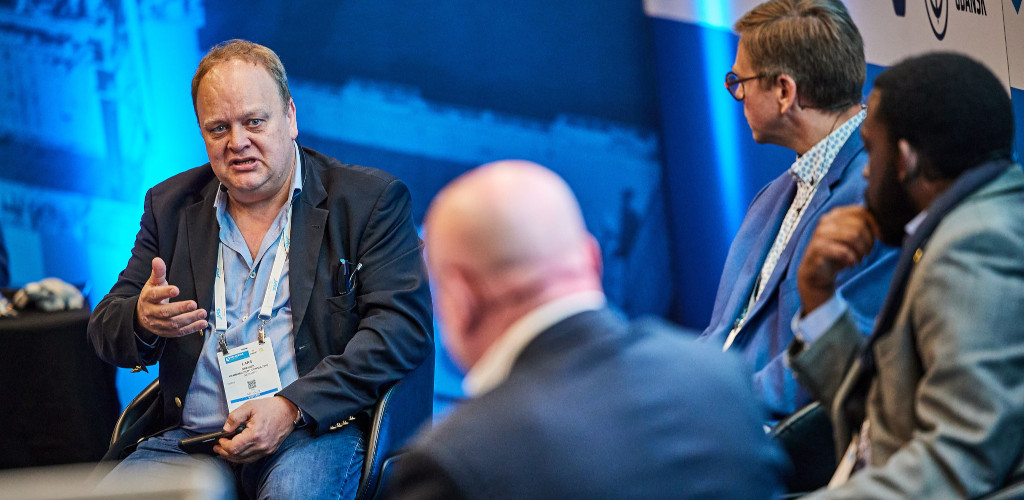May 25 | 2022
Dialogue Between Governments and Private Capital Key to Ensure Sustainability

African port development is accelerating at an exponential rate, creating a raft of new business opportunities for breakbulk and project cargo. But more transparency is required between local governments and private capital to ensure project success.
That was one of the key takeaways during Breakbulk Europe’s African Port Projects Update session, moderated by Lars Greiner, associate partner for Middle East and Africa at Hamburg Port Consulting.
Paul J Gallie, director of business development at AP Moller Capital and a speaker on the panel, told listeners that dialogue between governments and granting authorities on the one hand and the private sector on the other needed to start much earlier.
AP Moller Capital has deployed US$1 billion over the last three years into its Africa Infrastructure Fund, which comprises a number of investments in ports in West and East Africa.
“Discussion is absolutely key to avoid white elephant investments that unfortunately exist in Africa and around the world. In order for Africa to take full advantage of being able to develop these new green economies, we need to work together in a more sustainable way.”
The director pointed to the changing role of private capital, with environmental impact and job creation now top priorities.
“It is interesting to see how DFIs and lenders have changed their tune over the years. One of the first things they start looking at now is sustainable development goals and compliance. If they do not meet those then they will not even talk about financial returns and debt covenants.”
“You have to have a sustainable project, it has to be community friendly, and that is the way it should be.”
Port projects in Africa are expected to rocket in the coming years, with panellists underlining the region’s massive potential.
.jpg) The Port of Kribi, in southern Cameroon, about 50 km from the border with Equatorial Guinea, is undergoing some major upgrades, including the expansion of its container terminal and work an onshore hydrocarbons facility.
The Port of Kribi, in southern Cameroon, about 50 km from the border with Equatorial Guinea, is undergoing some major upgrades, including the expansion of its container terminal and work an onshore hydrocarbons facility.Michael Wilfried, director at the Port Authority of Kribi, revealed plans to create Cameroon’s first free trade zone at Kribi, with ongoing discussions with partners to develop the first 500 hectares of the new industrial sector.
“We really want to create a hub for industrial and logistical operations in the region,” the director said, adding that more work was needed to improve the connectivity between different markets in Africa to capitalize on investments.
Developments are also underway at Benin’s Port Cotonou, which has been under the management of the Port of Antwerp-Bruges since 2018. The port’s “makeover”, which calls for improvements to digitalization, transparency, training and infrastructure, is expected to take nine years.
The project will also see the construction of a new terminal for bulk and breakbulk operations.
Kristof Van Den Branden, the port’s commercial director, said that while the main focus was to create a world-class port facility, the expansion of green initiatives was high on the agenda.
“Port development goes hand-in-hand with solar energy and other renewable energies,” Branden said. “There are studies ongoing for wind energy, defining the right spot either onshore or offshore.”
He added: “Africa has not always had the best image unfortunately, and historically there have been reasons. But I think there is a whole change of mentality ongoing in a lot of African countries, and I think part of that is having companies like Port of Antwerp involved in these investment projects.”
Check out our interviews with the speakers from this session:
